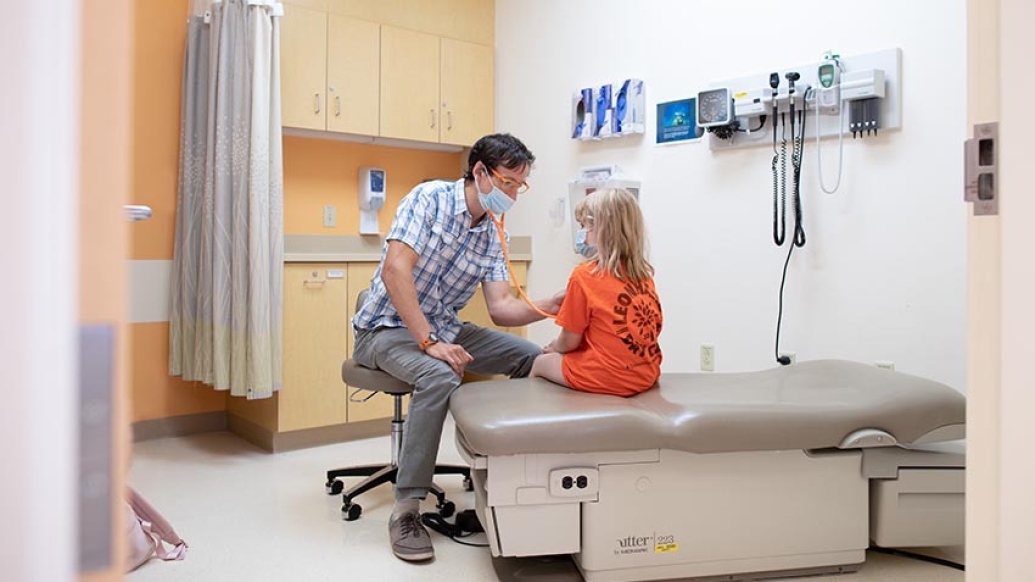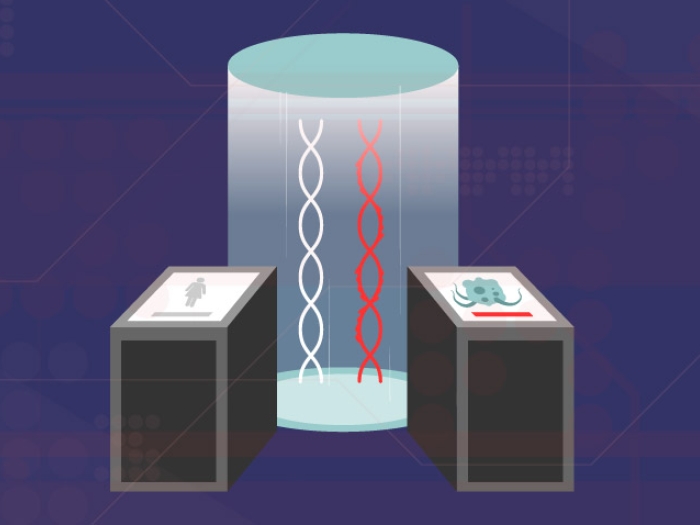A roundup of several recent Michigan Medicine discoveries that are shedding new light on pediatric brain cancers and helping to improve treatment options.
3:16 PM
Author |

Brain and spinal cord tumors are the second most common cancers in children, accounting for about 1 out of 4 childhood cancers.
Researchers at the Medicine C.S Mott Children's Hospital and the U-M Rogel Cancer Center have been breaking new ground in understanding and treating childhood brain cancers, including some of the most serious and aggressive types of tumors.
In honor of childhood cancer awareness month, here's a look at a couple of recent research developments from Michigan Medicine.
Toward a new treatment for DIPG
In August, a research group led by Sriram Venneti, M.D., Ph.D., published findings that point toward a new potential treatment for DIPG — the fatal brain stem tumor that claimed the life of Chad Carr, the grandson of former U-M football coach Lloyd Carr and in whose memory U-M's Chad Carr Pediatric Brain Tumor Center was founded.
The team's research, which was published in the leading journal Cancer Cell, suggests that targeting two energy-production pathways within the cancer cells could help overcome the effects of a cancer-causing mutation that is one of the hallmarks of DIPG, which is shorthand for diffuse intrinsic pontine glioma, and of similar tumors.
Individually inhibiting each of the two metabolic pathways provided a small increase in how long laboratory mice with DIPG survived, while targeting both pathways at the same time caused the mice to live much longer.
Our study has broad implications for using combination therapy to enhance individual precision therapies in pediatric and adult neuro-oncology patientsCarl Koschmann, M.D.
In one model used in the study, DIPG is always fatal. When two experimental drug compounds were given, however, 60% of the mice were still alive when the experiments were ended.
"Treatments for DIPG are desperately needed. So, while these are still early stage, pre-clinical results, we are excited about continuing to develop this new strategy toward human clinical trials," says Venneti, an associate professor of pathology at Michigan Medicine.
Combining therapies to enhance precision medicine
Earlier in the summer, a research team headed by Carl Koschmann, M.D., published research findings on a new combination treatment against high-grade gliomas and DIPGs that contain DNA alterations in a gene called PDGFRA.
"About 30% of children and young adults with these tumors have alterations, including mutations, in this gene," says Koschmann, an assistant professor of pediatrics at Michigan Medicine. "In the past, targeted treatments for PDGFRA-driven gliomas have failed to improve outcomes in both adult and pediatric patients. Our new study offers some promising signs for the future."
Using animal models and cell cultures, the research showed that using a combination of two drugs — dasatinib and everolimus — created an improved, synergistic effect and also increased the concentration of dasatinib that was able to penetrate the tumors, the team reported in the Journal of Clinical Investigation.
Five patients with the gene alterations were treated with the combination, which was well-tolerated and showed promising signs of benefit.
"Our study has broad implications for using combination therapy to enhance individual precision therapies in pediatric and adult neuro-oncology patients," Koschmann says. "We are hopeful these results will result in improved outcomes in children and young adults with PDGFRA-driven high-grade gliomas and DIPG, who are desperately in need of better therapy options."
Learn more about Michigan Medicine's ongoing research into pediatric brain cancer on the Chad Carr Pediatric Brain Tumor Center website

Explore a variety of healthcare news & stories by visiting the Health Lab home page for more articles.

Department of Communication at Michigan Medicine
Want top health & research news weekly? Sign up for Health Lab’s newsletters today!





